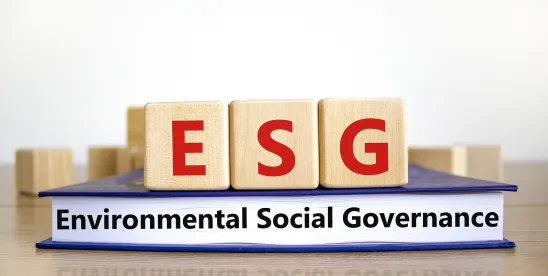In the latest episode of the Mintz on Air: Predictions and Practical Policies Podcast, ESG Co-chair Jen Rubin hosts a thoughtful discussion on diversity diversions and the future of DEI programs under the new administration. This episode is part of a series of conversations designed to help employers navigate workplace changes under the upcoming Trump administration.
Jen is joined by Employment Associate Nikki Rivers, to dive into critical topics, including:
- The ongoing relevance and importance of DEI initiatives
- Practical steps to help employees understand the value and purpose of DEI programming
- Finding the right balance for implementing effective DEI measures
- Actionable advice on how employers can prepare for what’s ahead
Listen to learn practical strategies to navigate a shifting workplace landscape.
Jen Rubin (JR): Welcome to Mintz on Air: The Predictions and Practical Policies podcast, a series of conversations to help employers better understand what to expect in the workplace, in the coming administration, and what those employers should do to prepare for the next administration. I am Jen Rubin, a Member of the Mintz Employment Practice. I have a bi-coastal practice from San Diego and New York, representing management executives and advising corporate boards on governance and ESG matters.
Today's topic is diversity diversions and what employers can expect in the next Trump administration. We are focusing today on DEI issues with my colleague Nikki Rivers. If you are interested in accessing more of our content, I invite you to visit us at Mintz.com.
We've been discussing the employment developments that we expect under the second Trump administration, and as part of that discussion, we are providing our listeners with some practical suggestions about what to do to prepare for the change in administration. With that, I'd like to introduce you to my colleague Nikki Rivers, who is one of our California-based employment lawyers focused on management side representation. Nikki also works with me and the ESG Practice Group on implementing, understanding, and quite aptly, defending diversity programs in the workplace.
So, Nikki, our topic again today is diversity diversions and the future of DEI programs under the second Trump administration. Have you noticed that DEI seems to be in the news a lot lately? And of course, this is happening before the election and perhaps even more so, following the election.
Let's tee things up with two questions: My first question is whether or not you believe DEI continues to be important or, might I add, relevant to corporate America? And the second question, which is probably more difficult to answer than the first: how do companies proceed in the face of what I'm calling the “darned if you do, darned if you don't” environment?
Let's start with your views on the first question: why, if at all, does DEI continue to be important? Certainly, incoming President Trump, as well as many Americans, appear to believe that DEI has no place in the workplace or, for that matter, in our society.
Are they wrong, Nikki? And if so, why?
Creating An Equitable Workplace
Nikki Rivers (NR): Thanks, Jen and I have to agree with you. DEI is certainly under societal attack in the media as you mentioned. We also see it through the outgrowth of legislation and cases following the US Supreme Court's decision on Harvard admissions. And for better or for worse, the spotlight on DEI is shining even with speculation on how this incoming administration is going to tackle DEI, or as you said, possibly throw it out the window.
But to me, DEI is really important. Throwing it out of the window, especially in the workplace, is short sighted and in my opinion, a crippling response in this focus. There are a couple of reasons for that: first, regardless of the stigma that's associated with terms like DEI and ESG, the reality is that employers are still obligated to comply with discrimination laws.
JR: In what way are employers still obligated?
NR: Employers have a legal obligation to treat people fairly and equally to ensure that employment-related decisions are based on neutral, job-related criteria. Regardless of legislation like that, like the Dismantle DEI Bill you discussed with Corbin [Carter] on your last episode, the truth is that anti-discrimination laws are not going anywhere.
JR: Well, let me ask you something about that: you know, there are some people out there who believe that DEI programs are actually acts of exclusion. So, what are some practical steps employers can take to ensure that employees understand that the purpose of DEI programing is actually not to exclude individuals, but to include individuals? And how does that square with the purpose behind our discrimination laws?
NR: When I hear acts of exclusion and DEI in the same subject, I go back to these extreme DEI programs that have been in the news and the court cases where the plaintiffs have accused their employers of creating a hostile work environment because their DEI programing refers to things like ‘white supremacy’ or ‘white exceptionalism’.
I have to remind myself, and I encourage other people to remind themselves, that those are the exceptions, those are the outliers, and that the vast majority of DEI programs really are appropriate for the workplace. And one of the pieces of advice that I have for employers on creating or maintaining DEI programs is, again, to go back to the laws. Those anti-discrimination laws require the employers to treat their employees fairly, and DEI programs should reflect that goal of creating an equitable workplace.
Finding the Right Balance with DEI Programs
JR: Let's just stop there and pause for a second, because those statements are almost aspirational, right? I think most employers would agree that they want to create a fair and equitable workplace. They want individuals to be comfortable. They want individuals to be in a position where they can really thrive. I don't know that anybody would really disagree with that.
But from a practical perspective, I want to ask you this very specific question because it's something that I'm very curious about. Companies are really subject to criticism, as you heard me say, a “darned if you do, darned if you don't” type of situation. Companies are being criticized for failing to properly provide programing. So, for example, the cases that were just recently filed against Lululemon where the individual shareholders accused Lululemon of making statements about the programs that Lulu had, that they did not abide by.
Then we go to the other side of the spectrum, and I'm thinking specifically of the case that was filed against Target , that recently a court denied a motion to dismiss and found that Target is subject to claims that it did not properly provide or disclose to its investors the risks associated with its Pride campaign. That's on the other side of the spectrum where you have a company that is alleged to have done too much.
Do you have some practical guidance for employers who are trying to find that right balance between enough but not too much?
NR: I do think there is a way to thread that needle. I can certainly appreciate the helplessness that employers in companies feel because, like you said, they're darned if they do, they're darned if they don't. It's the ultimate Catch-22. But having said that, there is a path forward here. I think first and foremost, companies need to understand who they are. They need to understand who their stakeholders are, how DEI plays into their corporate values, or DEI under some other name, and what their workforce expectations are. You know, there's so much media here and it's really easy as a company, to be persuaded to take action based on what news media is saying. But ultimately, what should be the driving decision making is who a company is at its core.
I think another thing that companies need to do as they look to how to thread the needle between darned if you do, and darned if you don't, is to have a clear understanding of what the purpose of their specific DEI program is. What are they trying to accomplish? Is it increasing employee retention? Is it ensuring equitable promotions? Is it driving profit? Is it creating or even maintaining a reputation, some combination thereof, or something entirely different?
The DEI program needs to have a focus. And into that point, too, I would add that not only does it need to have a focus, but employers and companies really need to be deliberate about creating a DEI program. The worst thing that any company could do is just throw out a DEI program without having thought it through, or adopting a program they haven't really thought through. They really need to think through, be deliberate as they're creating and putting out these DEI programs.
JR: What I'm hearing you saying, and I completely agree with it, is be mindful, not performative. Don't don't take action in response to some stakeholder out there who's saying, “I want you to do X, Y and Z”, but rather take action after you've thought about your mission, you've thought about the data, you've thought about what you're trying to accomplish in your workplace. Not a responsive type of approach, but a proactive approach. I recognize easier said than done, but it's certainly from a perspective of being thoughtful about how you put these programs into play.
Practical Guidance for Employers Navigating the New Administration
JR: Let's just talk about, and finish with the practical part of this. Here we have a situation where you have a change in administration. A lot of businesses are struggling with, “Do I need to make broad changes in my employment policies? Do I need to rewrite, for example, my non-discrimination non-harassment policies? Do I need to rewrite our training programs?”
Can you provide some guidance for employers who are concerned about what, if anything, they need to be doing as we turn the page, not only on the year, but to a new presidential administration version that has vocally indicated that they are a little hostile to some of these programs?
NR: We can see that there is a path forward that this next administration is trying to pave, but I go back to what we started this conversation with. The core elements of DEI are not going anywhere. There will always be anti-discrimination laws. That said, I do think if the crystal ball is accurate, there's going to be legal challenges to DEI, and I think those will continue.
You do need to know the law, not just at the federal level though, but at the state and local levels. We've got this presidential administration saying one thing, but states like California, I don't think they're going to be backing down and for employers or companies that are located in multiple jurisdictions, they're going to need to understand the law at all levels.
So, legal compliance and staying abreast of legal compliance is going to be really important as we look ahead. Second piece of advice and I say this with a grain of salt. I do think it's important for employers to stay the course. Don't do away with DEI programs altogether. But at the same time be prepared to have to make some interim adjustments. Again, not saying they should go away. I absolutely, 100% firmly believe in these DEI programs, but I think it's also reasonable to expect that there are going to be decisions flowing from this next administration or executive orders or legislation that may narrow the parameters about what is considered a compliant DEI program. Again, I say this with a grain of salt, because we're talking about four years. And when we're talking about creating and maintaining DEI programs, we need to think longer than four years. Doing away with them entirely is not the best approach.
JR: I definitely agree with you in this regard because when you hire somebody, you're not hiring them to work for you for four years. You're presumably hiring them because you want them to be a long-term part of your business, your business planning, and the expenses associated with hiring individuals, training them, making sure that they're aligned with your culture and making sure that they're performing the services that you hired them for, seems to me to not be a short-term type of project. And I'm just going to throw out I'm interested in what you think about this: a lot of the news and press, and decisions – and there's been a lot of hand wringing, and recriminations – you could go on and on about some of the issues relating to DEI. I happen to think that putting a laser focus on being mindful and not performative, in other words, not rolling out programs because you're supposed to be doing them, but rolling out programs because you've actually thought through what you need to accomplish and why. I would say it's a welcome shining a light on adjusting these programs and taking a step back and being thoughtful about why these programs need to be put in place and how they need to be designed.
I hate to be so positive, but I want to look at these things as a wave of change that really is positive if it requires employers to be thoughtful about what they're doing and why. I want to make the case for the fact that it is a good thing.
It's always a good thing to take a step back and think about your mission and what you're trying to accomplish.
Nikki, thank you for your time and your views. It's always a pleasure to have these discussions with you.





 />i
/>i

